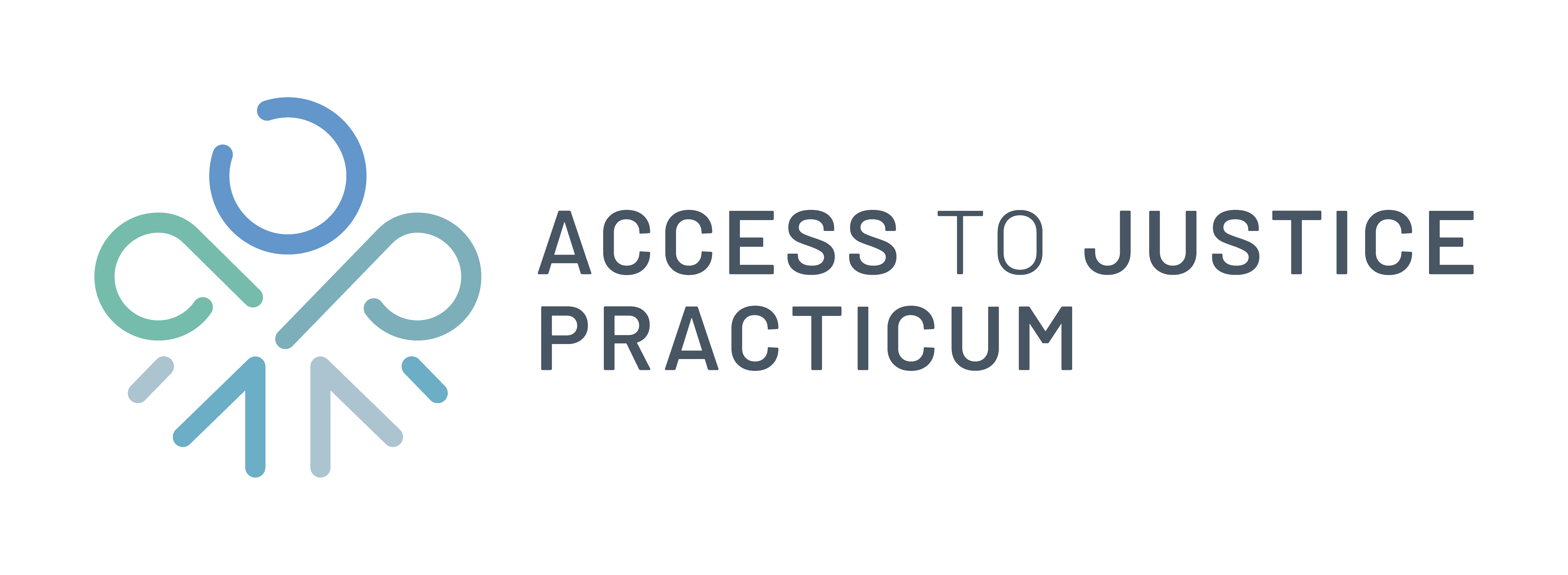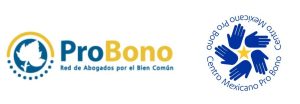This website uses cookies so that we can provide you with the best user experience possible. Cookie information is stored in your browser and performs functions such as recognising you when you return to our website and helping our team to understand which sections of the website you find most interesting and useful.
Access to Justice Practicum
 Apply here
Apply here
The Access to Justice Practicum funds outstanding recent law graduates to work for one year at members of the Pro Bono Network of the Americas, tackling systemic problems facing poor and marginalized communities. It creates a new channel to diverse public interest law careers, providing participants (“Practitioners”) with hands-on experience and support, including a one-week intensive training program during the year.
The Practicum seeks over time to transform the nature of legal services available to high-needs people across Latin America. Legal education in the region is formal, not practical, and many people lack access to justice. The Practicum will give starting lawyers the opportunity to pursue careers in the public interest.
Partners & Projects

In Argentina, the person who carries out the Access to Justice Practicum in the Comision Pro Bono of the Bar Association of the City of Buenos Aires will be in charge of receiving, advising and monitoring cases of civil society organizations that work with vulnerable populations, especially in the province of Buenos Aires. They will also have the opportunity to participate in the creation of a new line of work to care for digital environments for children and adolescents that deepens past practice that focused on the prevention and protection of cases of sexual abuse against children. The objective of this effort is to reduce gaps in access to justice, raise awareness about the importance of pro bono practice in coordination with legal firms and departments within the framework of our work as a clearinghouse, and provide a professional learning experience for the Practitioner.
In Mexico, the law practitioner will work on issues of public interest and will manage a project to promote the Manual for lawyers for addressing gender-based violence. Likewise, it will carry out a mapping of collaborative actors for the promotion, dissemination, and training of the manual. Finally, training will be managed and scheduled for legal professionals who voluntarily want to serve the sector of women and girls in situations of violence to provide them with guidance and legal advice.
See the complete description of the projects here.
Funding
The Access to Justice Practicum is funded by the private sector, including law firms and corporations, through sponsorship of individual attorneys for a one-year period. Funders help to select the Practitioners and also can participate in planning and conducting the public interest law training program. This initiative has been launched with the support of the Chubb Rule of Law Fund.
General Electric, through its legal department’s diversity council, led the sponsorships, bringing along law firms and legal corporate departments in both countries: Allende & Brea, and JP Morgan in Argentina.
Become a Practitioner
- Graduation from an accredited law school within the past two years, and license to practice law in the jurisdiction where the Practicum will take place
- Demonstrated interest in public interest lawyering, particularly on issues related to the specific project. See the complete description of the projects here.
- Familiarity with the topic of the particular project for each of the countries. See the complete description of the projects here.
- Excellent legal research and writing skills
- Strong oral communication skills
- Strong external relationship building with emotional intelligence and persuasive communications
- Team spirit, including ease of working with colleagues and partners from varied backgrounds and collaborating in virtual groups
- Strong organizational skills and ability to work quickly and well under pressure, to manage multiple tasks, and to meet tight deadlines
- Strong digital technology and social media knowledge and skills
- Diversity criteria will be taken into consideration
Apply here
Support the program
The success of the Access to Justice Practicum will depend on the support of committed donors. Each donation will enable the Vance Center to fund outstanding young lawyers and their host organizations, thus helping low-income people secure access to justice. Donations can be designated for particular projects or hosts or the Practicum generally.
FAQ
- Can I propose my own project?
No. The projects will be designed by the Vance Center in collaboration with participating host organizations.
- Who selects the practitioners? What role does the host organizations play in the selection process?
The Vance Center will coordinate the selection with the funding partners and the host organizations.
- What does the one-week course entail?
The course will have three stages: 1) “hard” lawyering skills needed in daily practice, including interviewing clients and examining witnesses, working with professionals from other fields during litigation, drafting different types of legal documents, oral advocacy skills, and developing a theory of the case, among other topics; 2) non-legal skills essential to effective public interest advocacy, including human rights monitoring, fact-finding, and reporting and developing collaboration with social justice organizations, as part of a broader theory of change; and 3) soft skills critical to representing vulnerable groups, including training on gender, children’s rights, disability and race discrimination and work with individuals from informal settlements and other communities exposed to high levels of trauma.
- Can I participate in the course if I am not selected as a practitioner?
While participation initially will be limited to Practitioners, it may become open to others based on availability.
- How do I find out more about the details of the Practicum projects?
The description of each of the projects is here
For additional information, please email: accesstojusticepracticum@nycbar.org
Previous Cohort
Cohort 1, 2022: Argentina, Colombia and Mexico

In Colombia, Fundación Pro Bono Colombia hosted the Practicum. The Foundation provides representation in individual cases, as well as strategic litigation and structural social-impact projects, including in education and research. The Practitioner set up a medical-legal partnership, providing legal services at clinics and hospitals to address the social determinants of health and difficulties in accessing health services. Evidence from other countries revealed that such partnerships would yield great benefits for patients’ health and well-being.
The Pro Bono and Public Interest Committee, an initiative of the City of Buenos Aires Bar Association, hosted the Practicum in Argentina. With expertise in disability rights, children’s rights and non-profit law, it developed a partnership to support the legal needs of beneficiaries of the Live Network Association (“Asociación Red Viva”, in Spanish), which serves children and adolescents who experience sexual violence and abuse.
In Mexico, Fundación Barra Mexicana, which assists poor communities, and the Centro Mexicano Pro Bono, which targets non-profit organizations, social entrepreneurs, and small businesses, co-hosted the Practicum. The project focused on strengthening pro bono services to victims of gender-based violence by developing a toolbox of legal and advocacy skills necessary for effective pro bono representation of such cases.
Cohort 2, 2023: Chile, Peru and Brazil

In Brazil, the practicum was carried out by Women in Law Mentoring Brazil (WLM) the Women in the Profession (WIP) Chapter in Brazil. The practitioner worked on a project focusing on the intersection of race and gender. The young lawyer conducted a legal research on current legislation, regulation, and policy to secure access to justice and address discrimination against afro-descendent women or “pretas”. The practitioner connected with pro bono institutions and non-profits in Brazil to conduct a form of “internship” to research the topic and issues that are in greater demand, to also have qualitative data on the matter. In addition the practitioner organized a series of roundtables with the legal community to present the key findings and suggest follow-up efforts to improve access to justice in alignment with the qualitative data collected from pro bono institutions and non-profits related to the matter. The practitioner produced a report including the research results, key findings, and recommendations.
In Chile, Fundacion Pro Bono Chile, hosted the practitioner. The project worked with pro bono lawyers experts in housing law that helped analyze what legal reforms should be proposed so that the system can support people to get out of overcrowding and confinement conditions.
In Peru, the Alianza Pro Bono Peru, which makes efforts to make justice more accessible to all, promoting the provision of free legal services in favor of people in a state of vulnerability and non-profit organizations that assist them and work for society. The Project will provided access to justice to trans women part of the LGBTI community. The Practitioner started with an investigation on where there are some shortcomings legally for this community and produced a Guide that would inform the women of their rights. At the same time the practitioner will also work with organizations that work with the trans community and will identify some of the challenges that this community faces and what possible legal paths that contribute to your solution in an easy-to-read guide.


